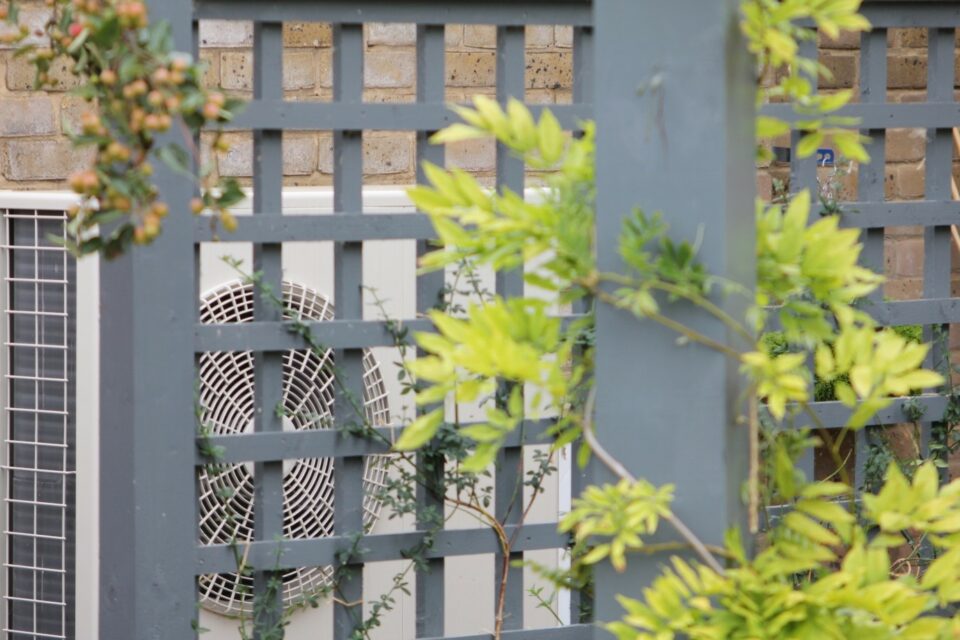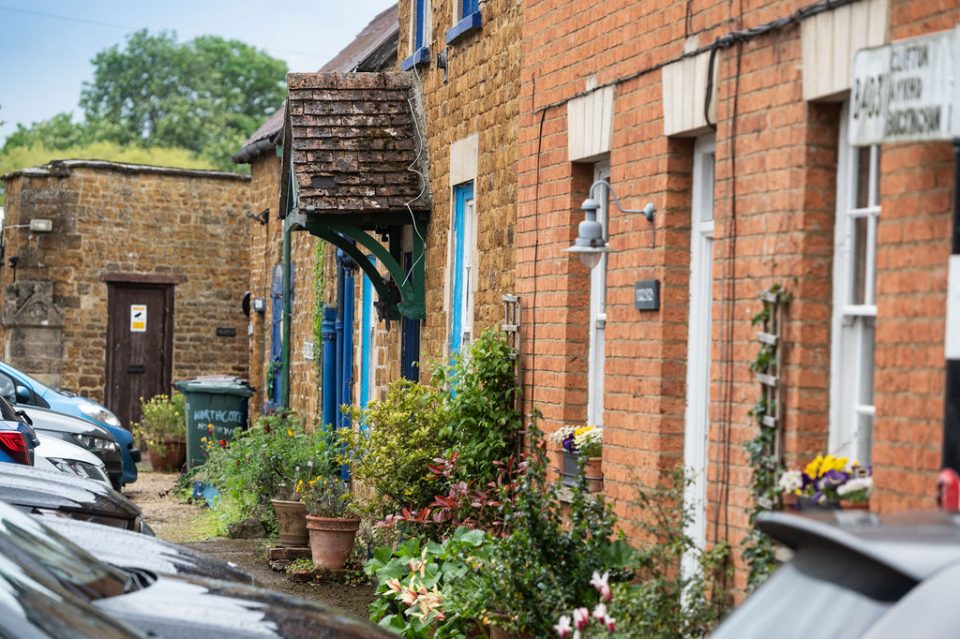- Case studies
- Smart Flex Heat Pump Trial case study

Smart Flex Heat Pump Trial
An extension of the Deddington and Duns Tew Smart and Fair Neighbourhood Trial
The Smart Flex Heat Pump Trial is a trial working with households across Oxfordshire, aiming to learn whether using smart technology to control domestic heat pumps can deliver flexibility to the local energy network as well as benefits to homeowners.
It came out of the Deddington and Duns Tew Smart and Fair Neighbourhood Trial (more on this below).

What we hope to learn?
The main aim of the trial is to test the provision of flexibility services – to see whether domestic heat pumps are able to deliver flexibility services to the network. We want to see how the use of remote digital technology can benefit households as well as the local energy system. This means we’ll be looking at how we can change the energy demand from the heat pumps to deliver flexibility for the local grid, meaning it can deal more effectively with the demand for energy in the area.
We also want to test if providing this flexibility could generate financial benefit to participants as well seeing if the use of smart technology can deliver cost savings in how the heat pump is used by the homeowners.
We have already learned a great deal about the potential barriers to heat pump installation for homes, both in terms of planning and cost. We are capturing all of this in order to make recommendations for the future roll-out of heat pumps for homes and businesses, with the eventual aim of creating a successful smart, local energy system, paving the way for our net-zero future.
Background
The Smart Flex Heat Pump Trial is an extension of our Deddington and Duns Tew Smart and Fair Neighbourhood Trial which is focused on how to enable a zero carbon energy future for rural communities which are fully or partly off the gas grid. Through the installation of heat pumps and smart monitoring technology we aimed to provide flexibility services to the grid and decarbonise the heating systems in the local area.
The Sustainable Duns Tew and Deddington Environment Network low carbon community groups worked with the Low Carbon Hub to create a streamlined offer for local homeowners to facilitate the installation of these technologies.
The decision was taken to extend this offer to cover a wider geography of Oxfordshire to work with people who already had heat pumps installed or who were further along in the process of being ready for installation. We are now working with three homes with heat pumps installed, either prior to the project or through the project, with the aim of starting the technical trials in the winter of 2022.
What’s happening in the trial?
We have been working with these three homeowners to get their systems ready to take part in the trials. We have installed the smart monitoring equipment that will link them with the cloud-based digital platform (People’s Power Station 2.0). This will remotely control the power consumption from the heat pumps to see how they can deliver flexibility to the local network and potentially deliver cost savings to the homeowners.
Many of the other homeowners taking part in the trial that do not have a heat pump installed have received a ‘Whole House Plan’ from Cosy Homes Oxfordshire, a comprehensive study of the improvements that could be made to their homes to cut their energy use and carbon emissions. Many of these homes are now embarking on getting their property ‘heat pump ready’ through upgrades to the fabric of their homes.
This in itself is a key part of Project LEO’s learnings as we uncover the impacts and challenges to installing ancillary energy efficiency measures (such as insulation) that are required to make the best use of heat pump technology in domestic premises.
Now that, as of October 2022, all the technology is in place in our three participating households, we can start looking at how these heat pumps can deliver flexibility services to the local energy grid. In effect, testing how increasing and lowering the power consumption at different times can benefit demands placed on the local energy system, helping us create a model for this type of energy flexibility for a zero-carbon future.
The trial is on course to start testing the capability of heat pumps to deliver flexibility from winter 2022. This will be when we can start to see the potential benefits of heat pumps for local energy flexibility and households. We are looking forward to sharing our findings in the new year.

Who is involved?
Project LEO is working with a number of partner organisations on the trial. To help shape and deliver the trial we have worked closely with Deddington Environment Network and Sustainable Duns Tew low carbon community groups.
The smart monitoring comms equipment is being provided by PassiveUK. This will be vital to linking the energy consumption of the heat pumps with the controlling and monitoring digital platform.
The trial will aim to fully integrate the heat pumps onto People’s Power Station 2.0 – the online tool we’ve developed with Low Carbon Hub.
Cosy Homes Oxfordshire provided Whole House Plans, heat loss surveys to interested homeowners as well as the installation of two of the heat pumps taking part in the trial.